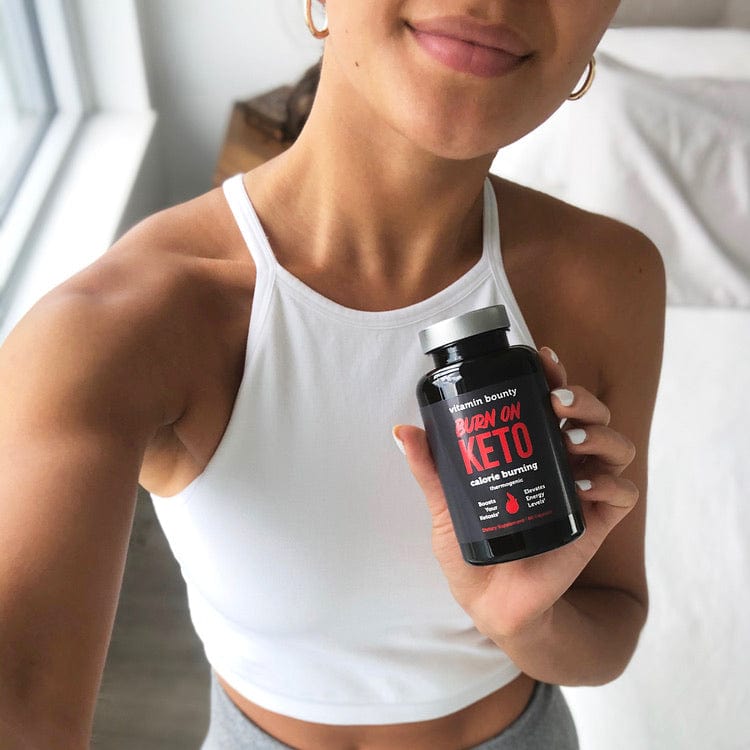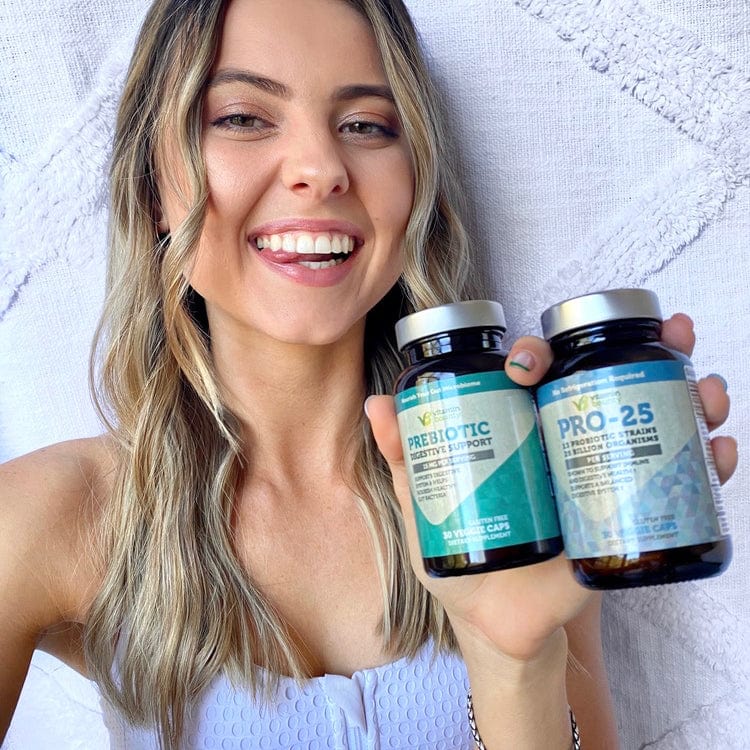Between seasonal allergies, the common cold, annual flu, and now COVID-19, your body can have a lot to handle, sometimes. With all of those germs and allergens floating around, how do you stay healthy? What keeps you feeling like yourself? It's simple: a strong immune system. It's your immune system that does battle against foreign invaders, like infection, and it's your immune system that helps you bounce back when you're sick.
You might be wondering what you can do to ensure that your immune system is well-equipped to fight off infection. Read on –we've got ten tips to keep you feeling well!

1. Get Adequate Sleep
It's common knowledge that sleep is essential for staying alert, healthy, and productive, yet so many of us don't get the recommended amount of sleep each night (7-9 hours). Even more, it's much more difficult for your immune system to fight off infection when you're running on fumes.
What we know for sure is that "the immune system functions best when it gets enough sleep," according to Dr. Nathaniel Watson, co-director of the UW Medicine Sleep Center. Make sure you adjust your sleep schedule to catch the right amount of Z's!

2. Don't Skimp on Nutrition
Among the best ways to keep your immune system strong is to ensure your body receives the nutrients it needs each day. Aim for the recommended amount of servings per food group (1-2 servings of fruit, 3-5 servings of vegetables, etc.), and for an extra boost, up your intake of foods that naturally contain zinc, Vitamin C, and antioxidants.
Great options that are packed with zinc include leafy green vegetables, such as kale, broccoli, and spinach, while some tasty Vitamin C foods include lemons, oranges, and grapefruit. For antioxidants, try a few squares of dark chocolate (at least 70% cacao), tea, or a serving of berries!

3. Vitamins & Supplements
Since our bodies require so many different vitamins and minerals, it can be difficult to avoid deficiencies! In many cases, dietary deficiencies mean that your immune system is lacking an essential element of what it needs to remain strong – this is where vitamins and supplements come into play.
Aside from getting all of the essential nutrients each day, such as Vitamin D and Calcium, both probiotics and elderberry are fantastic immune-strengthening supplements that your body can use to remain healthy. Elderberry, in particular, is a plant that has been examined in multiple studies, and is thought to show reduced cold and flu symptoms.
Probiotics are also important in supplying your gut with the beneficial bacteria it needs to support immune health. Probiotics are found in fermented foods, such as kefir, sauerkraut, and aged cheeses; however, the most popular probiotic "staple" remains yogurt. Convenient, healthy, and palatable, a nutritious yogurt will provide the probiotics your immune system needs.
If you don't regularly consume any of the above foods, consider taking a probiotic supplement. Cheap and effective, a good probiotic will deliver the essential bacteria your body needs to remain well!
4. Stress Less
It's widely-known that stress wreaks havoc on the body, but did you know that constant stress and anxiety can make you more susceptible to catching a bug? Turns out, our immune systems are extremely sensitive to cortisol – the stress hormone – which we release in spades under pressure.
A few "quick fixes" for stress: spend some time in meditation or prayer, or engage in just five minutes of quiet time at the onset of anxiety. When you're able to snag a bit more time for yourself, go for a long walk, make a cup of tea, and curl up with a good book. Self-care is so important, and should never be underestimated as an effective stress reliever.

5. Minimize Your Intake of Alcohol & Sweets
Sugar and alcohol are, unfortunately, two substances that your body treats as toxins.
Sweet treats feed the "bad bacteria" in your body, which multiply and create an imbalance that stifles your immune system. Additionally, if you have an underlying infection, too much sugar can exacerbate symptoms, making you feel much worse than you did previously.
Alcohol, too, should only be consumed in moderation. In addition to making you dehydrated, alcohol puts a significant damper on your immune system, making you much more vulnerable to colds and infection.

6. Sweat It Out
Unlike the less-than-ideal nature of alcohol and sweets, regular exercise can play a key role in keeping you healthy and strong.
According to a representative of the American College of Sports Medicine, people who exercised at least 45 minutes per day, 4 or more days per week, took up to 50% less time off from work due to illness. Exercise is also great for improving mental health – even a ten-minute walk each day lowers blood pressure and increases quality of rest at night.
7. Stay Positive!
Keeping positive has many long-term benefits. In fact, studies show that people who regularly experience positive emotions and outlooks – as well as those who practice positive thinking – had a stronger resistance to colds and infection.
Keep your chin up – it'll be worth it to remain healthy.
8. Remember to Practice Social Distancing
This should be a no-brainer, but it's often overlooked: before you meet up with friends or family members, simply ask themif they are feeling well (and by "well," we mean they don't have any variety of "the sniffles"). Some people try to downplay their cold symptoms, but their cold might hit you in a much harsher way, leaving you to struggle through a week or two of feeling needlessly lousy.
It never hurts to ask someone whether they're healthy before getting together. If they're truly your friends, they'll understand.

Staying hydrated is an important factor of remaining well. Aim to drink 64 oz. of water each day (or the 8x8 rule, as it's called), and if you like tea, throw that into the mix, too! Different types of tea can provide specific health benefits, but most tea contain antioxidants, stress-relieving properties, and may even contribute to immune health.
Whether your tea is black, green, or chamomile, it never hurts to decompress after a long day with a cup of decaf!

10. Have Allergies? Treat Them Right Away!
If you're prone to allergy symptoms like runny nose, watery eyes, and even a sore throat during allergy seasons (largely spring and fall), they shouldn't remain untreated. If your immune system is preoccupied with harmless allergens, it won't be able to fight colds and flu as effectively.
There are some great over-the-counter solutions for allergy symptoms, such as nasal sprays and oral antihistamines. Select one or two that are right for you, so your body can focus on invaders like harmful bacteria rather than on pollen or ragweed.
Following these ten tips will help you reduce your chances of catching a bug, so you can stay healthy and live your life to the fullest!







Leave a comment
All comments are moderated before being published.
This site is protected by hCaptcha and the hCaptcha Privacy Policy and Terms of Service apply.